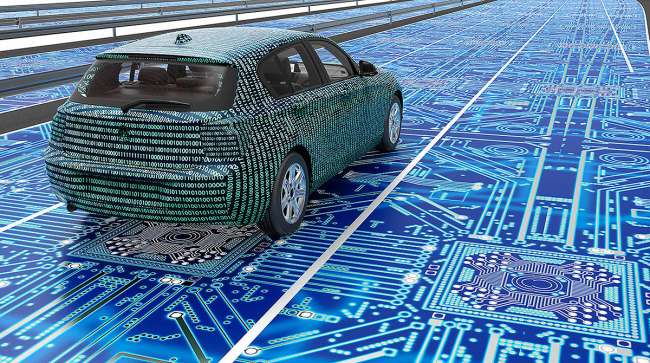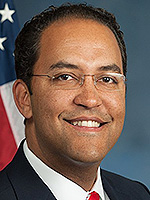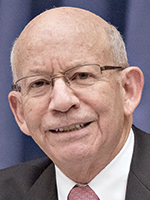Senior Reporter
Future of Workforce a Priority Amid AI Push, Lawmakers Say

[Stay on top of transportation news: Get TTNews in your inbox.]
WASHINGTON — The advancements in artificial intelligence will require a national strategy that ensures workers are able to adapt to sweeping changes, two members of Congress active in this national debate said Oct. 16.
“Creating a national strategy would better prioritize limited government resources and more rapidly advance American [artificial intelligence] technology,” said Rep. Will Hurd (R-Texas), a member of the Appropriations Committee, addressing an audience at the Bipartisan Policy Center think tank.

Hurd
“We have to prepare our workforce for disruptions not seen since the industrial revolution. And we have to train our kids for 21st-century jobs and 22nd-century jobs that don’t even exist today,” Hurd added.
Despite the priority members of Congress have put on job creation over the years, a high degree of concern has arisen recently that workforce disruptions likely will occur in many industries, including freight transportation, agriculture and manufacturing, explained Rep. Bill Foster (D-Ill.), chairman of the Task Force on Artificial Intelligence.

In our first episode of RoadSigns, Season 5, we ask: How Will Machine Learning Enhance Transportation Software? Machine learning promises to supply your shippers with better freight visibility with one click, better manage your driver profiles and increase retention with easy software. But, Seth Clevenger wonders, will these technologies really continue to provide trucking and logistics managers with better decision and support solutions for real-world problems tomorrow? At the 2019 McLeod Software User Conference, our host discusses all this with company CEO Tom McLeod. Hear a snippet, above, and get the full program by going to RoadSigns.TTNews.com.
“It’s actually sort of funny the way this is getting easier to discuss politically. And the reason for that is that it is not just the farmers, and the factory workers, and the truck drivers that will be at risk. It is everyone.”
While key policymakers continue to explore ways to proceed with artificial intelligence policies, transportation committees have yet to advance legislation that would facilitate the development and access of autonomous vehicles.
Such autonomous policy guidelines potentially could be included in comprehensive highway policy legislation that the House intends to consider early next year, aides informed Transport Topics.
In the previous congressional session, a Senate panel took up bipartisan legislation designed to establish a policy framework for the technology. The bill did not receive a vote on the Senate floor. Workforce and wireless communication concerns were raised during the bill’s debate.
Meanwhile, stakeholders continue to tout the potential benefits a new autonomous technology measure would have throughout the vast transportation sector.
Before Congress resumed its fall agenda, nearly 50 groups urged the transportation panels to act on autonomous policy to enhance access for the elderly and disabled, data sharing and resources for the National Highway Traffic Safety Administration.
“With these overarching recommendations, we can ensure [autonomous vehicles] provide Americans with mobility options that are safe and convenient,” the National Association of City Transportation Officials, the National League of Cities and Transportation for America wrote on Aug. 23. “We look forward to working together with you to enact a federal regulatory structure to safely integrate AVs into our transportation system.”
American Trucking Associations, which champions the inclusion of commercial vehicles in autonomous legislation, emphasized drivers will continue to have essential roles in the industry.

DeFazio
Meanwhile, a house panel recently scrutinized the ride-sharing industry, which aims to utilize autonomous applications. Rep. Peter DeFazio (D-Ore.), chairman of the transportation committee, said companies advancing disruptive technologies should expect greater regulatory oversight.
“The transportation landscape in many cities has been upended by transportation network companies. Companies — led by Uber and Lyft — that have developed transformative technology platforms connecting riders and drivers that have revolutionized how we travel. In a very short time, many people have come to rely on these services as a regular transportation option,” DeFazio said Oct. 16.
“Over the past decade, we’ve seen an unprecedented explosion of a new player on our public roads: TNCs,” added Rep. Rodney Davis (R-Ill.), ranking member of the Highways and Transit Subcommittee. “The mobility landscape has been completely reshaped, and the growth for on-demand shared mobility has required states and localities to rethink how to plan for and organize their road and transit systems.”
Want more news? Listen to today's daily briefing:




